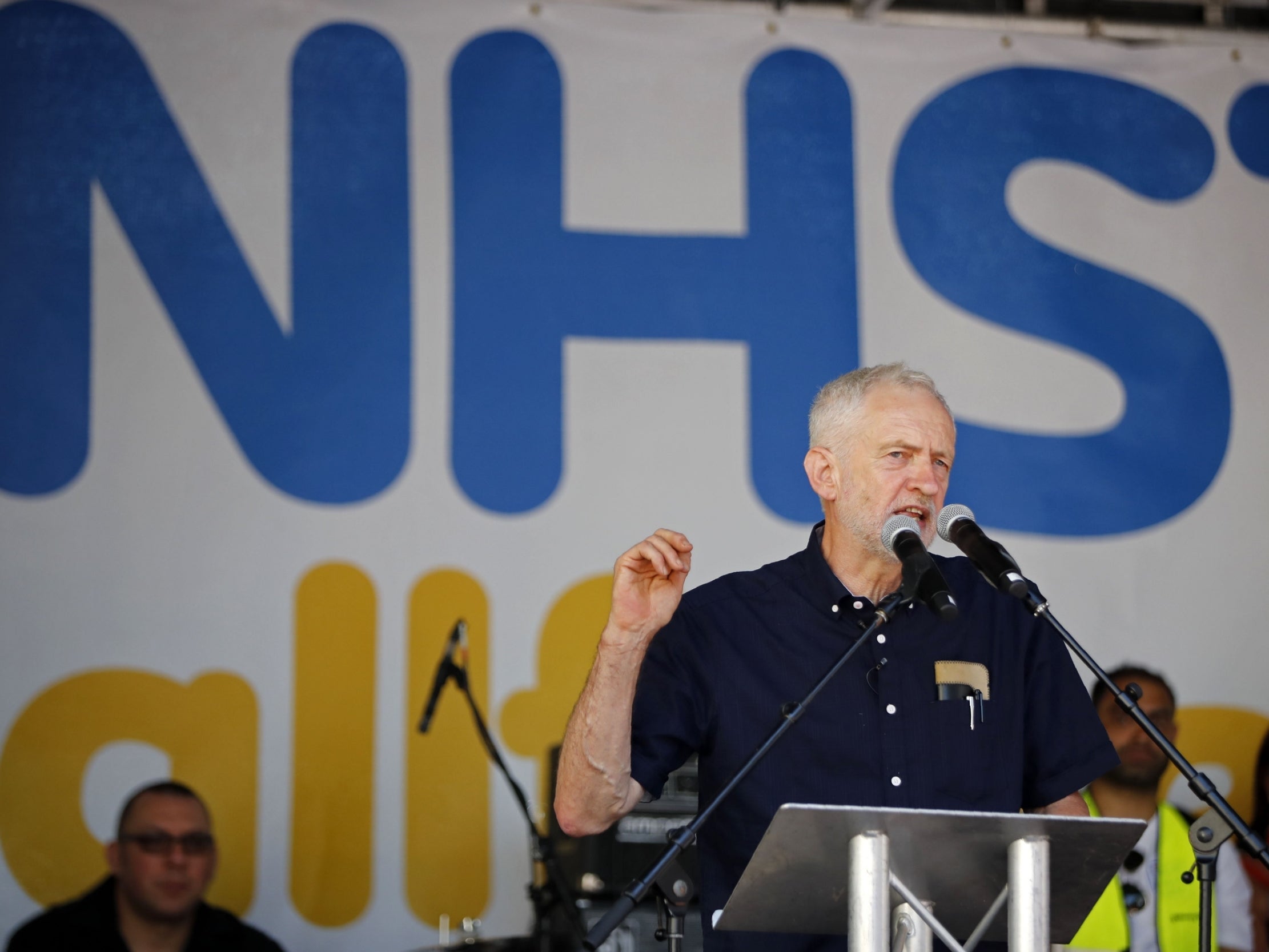Jeremy Corbyn should be proud of Labour’s NHS record, but to accuse the Conservatives of ‘killing people’ demeans him
The Labour Party is winning the argument about the future of the health service: it has no need to demonise its opponents

Your support helps us to tell the story
From reproductive rights to climate change to Big Tech, The Independent is on the ground when the story is developing. Whether it's investigating the financials of Elon Musk's pro-Trump PAC or producing our latest documentary, 'The A Word', which shines a light on the American women fighting for reproductive rights, we know how important it is to parse out the facts from the messaging.
At such a critical moment in US history, we need reporters on the ground. Your donation allows us to keep sending journalists to speak to both sides of the story.
The Independent is trusted by Americans across the entire political spectrum. And unlike many other quality news outlets, we choose not to lock Americans out of our reporting and analysis with paywalls. We believe quality journalism should be available to everyone, paid for by those who can afford it.
Your support makes all the difference.Since when did we start celebrating 70th anniversaries?
We blame Theresa May and Jeremy Hunt for wanting to call a decision to increase National Health Service funding a “birthday present”. They linked it to this Thursday’s date, on which Aneurin Bevan in 1948 declared the new service open.
Unsurprisingly, the Labour leader responded by laying claim to the anniversary for his party. Jeremy Corbyn and many of his MPs turned up for Prime Minister’s Questions this week with badges the size of saucers bearing the legend “NHS 70”.
Today Mr Corbyn spoke in the Welsh town of Tredegar – Bevan’s birthplace – to celebrate the founding of the NHS and to “declare war on health inequality” for the future.
Of course, Labour should be proud of having created the NHS and it is entitled to remind people of this at every opportunity. Mr Corbyn should point out that it was a Labour government, from 1997 to 2010, that increased real spending on the service by the highest annual rate since its creation.
Inevitably, this means contrasting the Labour record with that of the Conservatives since 2010: an eight-year period of the lowest annual real increases in the NHS’s existence. This long period of restraint, as the demands of an ageing population outstrip inflation, has caused the pressures that make Ms May’s announcement of an extra £20bn a year in real terms after five years – a dramatic increase – barely enough to keep up.
However, Mr Corbyn goes too far when he declares: “There is clear and mounting evidence that austerity and inequality are killing people.” The implication, given that the Labour leader uses “austerity” to describe the government’s policy of cutting the deficit, is that it is Conservative policy to kill people. This is unworthy of him, and it undermines the quality of democratic debate.
That is not to deny that policy decisions have life and death consequences. But, as we have seen in the Gosport hospital scandal (where 450 lives were “shortened” in the 1990s), the definition and causes of excess deaths are complex. And impugning the motives of one’s political opponents should not be part of the debate about how best to secure improvements in the NHS.
We will, no doubt, hear more of this kind of thing over the next few days. The old libel that the Tories opposed the creation of a health service for all regardless of means in 1948 will be rehearsed. That was precisely what the party proposed in its manifesto of 1945: the arguments and parliamentary votes thereafter were about the structure of the service rather than about the principle that it should be free at the point of need.
Apart from Margaret Thatcher’s flirtation with an insurance-based alternative in the 1980s, squashed by Kenneth Clarke as health secretary in 1989, the Tories have always been committed to the principles of the NHS.
Mr Corbyn ought to realise that his party has won the argument for higher funding for the NHS. He would do better, and he might persuade swing voters of his case, if he were to congratulate Ms May and Mr Hunt on moving in the right direction and explain why it is not enough.
Perhaps by the time we reach the 75th – a proper anniversary – this debate could be conducted in more reasonable terms.
Join our commenting forum
Join thought-provoking conversations, follow other Independent readers and see their replies
Comments